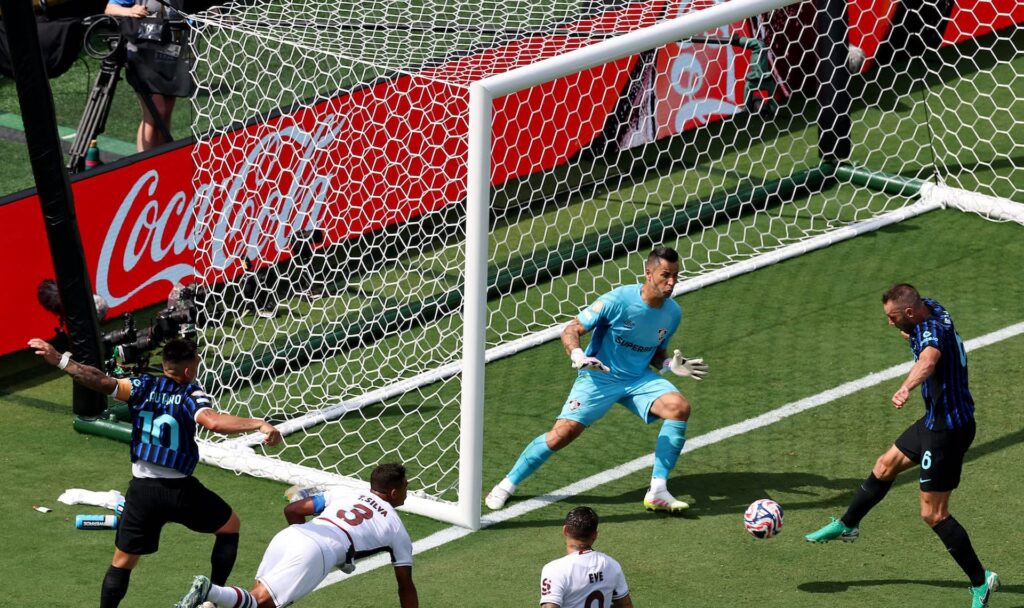
As the world gears up for the 2025 Club World Cup, Coca-Cola is facing mounting criticism from doctors and public health experts. The call for action is not about the game itself but about the corporate partnerships that have long been a part of FIFA’s sponsorship strategy. At the heart of the controversy is Coca-Cola, a major FIFA sponsor since 1978, whose sugary products are being linked to a global epidemic of diet-related illnesses.
Dr. Chris van Tulleken of University College London and Professor Carlos Monteiro of the University of São Paulo are leading the charge, urging FIFA to reconsider its ties with Coca-Cola. In a compelling editorial published in The BMJ, they highlight the strong evidence connecting sugary drink consumption to rising rates of obesity, diabetes, heart disease, and tooth decay across more than 180 countries. The doctors argue that these ultra-processed drinks offer no nutritional value, yet they are marketed as part of a healthy lifestyle.
Historical Sponsorship Under Scrutiny
Coca-Cola’s relationship with FIFA dates back to 1978, leveraging football’s global appeal to promote its sugary beverages. However, as the health implications of these products become increasingly clear, critics argue that FIFA can no longer afford to ignore the consequences of its corporate partnerships. The doctors’ editorial underscores the concern that Coca-Cola is not just sponsoring football but is also normalizing sugar consumption, which contradicts the health message that sports should promote.
According to the editorial,
“Coca-Cola isn’t just sponsoring football; it’s normalising sugar consumption in a way that undermines the health message sport should stand for. Perhaps most concerning is their appeal to children, who are particularly susceptible to the allure of sugary drinks and their pervasive marketing.”
The Concept of “Sportswashing”
Critics accuse Coca-Cola of “sportswashing,” a term used to describe how companies use their association with elite sports to distract from the negative impacts of their products. By accepting such sponsorships, FIFA risks reinforcing the misleading notion that sugary drinks are compatible with fitness, even as diet-related illnesses surge worldwide.
The impact is particularly severe in lower-income communities, where access to fresh food is limited, and healthcare resources are scarce. Experts argue that these marketing partnerships do more than drive sales; they help establish long-term habits that exacerbate health disparities. Furthermore, Coca-Cola’s status as the world’s leading producer of branded plastic waste adds another layer of concern for environmental and public health advocates.
Public Health Campaigns Gain Momentum
Public health campaigns like “Kick Big Soda Out of Sport” are gaining traction, urging organizations to sever ties with Coca-Cola. During the 2024 Paris Olympics, the campaign gathered over 250,000 petition signatures and support from 93 health groups. Van Tulleken and Monteiro emphasize that FIFA, given its global influence, has a responsibility to set a precedent by prioritizing health over corporate profits.
As the world tunes in for the 2025 Club World Cup, the message FIFA sends is more critical than ever. Health experts insist that promoting wellness should take precedence over financial gain. The study concludes with a powerful statement:
“We can’t ignore the irrefutable link between sugary drink consumption and poor health. By ending its sponsorship deal with Coca-Cola, FIFA could send a powerful message — that health supersedes corporate sponsorship. Big Soda has exploited the world’s most popular sport for commercial gain, and in this moment, FIFA has an opportunity to lead by example.”
The call for change is clear: as the conversation around health and corporate responsibility evolves, FIFA faces a pivotal decision that could set a new standard for sports sponsorships worldwide. The implications of this decision could reverberate far beyond the football field, influencing how sports organizations align their values with public health priorities in the future.






